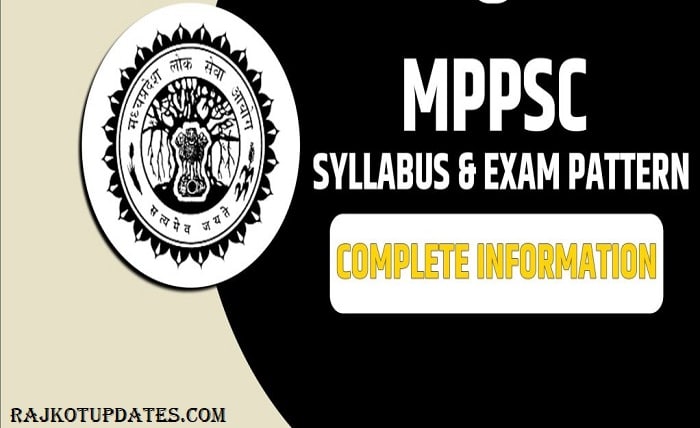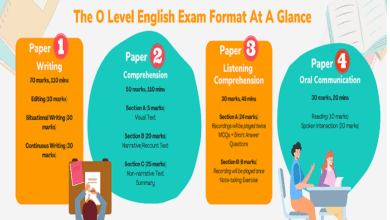MPPSC Syllabus: A Comprehensive Guide for Aspirants of Madhya Pradesh Civil Services Exam

If you are an aspirant of the Madhya Pradesh Civil Services Exam, also known as the MPPSC Exam, you might be wondering what is the syllabus and exam pattern of this prestigious exam. The MPPSC Exam is conducted by the Madhya Pradesh Public Service Commission (MPPSC) every year to select candidates for various posts in the state administration, such as Deputy Collector, Deputy Superintendent of Police, Commercial Tax Officer, District Registrar, etc. The MPPSC Exam consists of three stages: Preliminary, Mains, and Interview. In this blog post, I will provide you with a detailed overview of the MPPSC Syllabus and Exam Pattern for each stage, along with some tips and resources to help you ace the exam.
MPPSC Preliminary Exam Syllabus and Pattern
The MPPSC Preliminary Exam is the first stage of the MPPSC Exam, and it serves as a screening test to shortlist candidates for the Mains Exam. The MPPSC Preliminary Exam comprises two papers: General Studies and General Aptitude Test. Both papers are objective type, and each paper carries 200 marks. The duration of each paper is two hours, and there is no negative marking for wrong answers. The MPPSC Preliminary Exam Syllabus and Pattern are given below:
Paper I: General Studies
The General Studies paper tests the candidates’ knowledge of current affairs, history, geography, polity, economy, science, environment, and culture of India and Madhya Pradesh. The syllabus of the General Studies paper is as follows:
- General Science and Environment: Questions on general science and environmental issues, such as biodiversity, climate change, pollution, etc.
- Current Events of National and International Importance: Questions on important events and issues related to politics, sports, arts, literature, etc.
- History of India and Independent India: Questions on ancient, medieval, and modern history of India, with emphasis on the freedom struggle and post-independence developments.
- Indian and World Geography: Questions on physical, social, and economic geography of India and the world, with special reference to Madhya Pradesh.
- Indian Polity and Economy: Questions on the constitution, political system, governance, planning, and economic development of India.
- Sports: Questions on important sports events, personalities, awards, etc.
- Geography, History, and Culture of Madhya Pradesh: Questions on the geographical features, historical background, and cultural aspects of Madhya Pradesh.
- Polity and Economy of Madhya Pradesh: Questions on the political structure, administration, planning, and economic growth of Madhya Pradesh.
- Information and Communication Technology: Questions on the basics of computers, internet, social media, e-governance, etc.
Paper II: General Aptitude Test
The General Aptitude Test paper assesses the candidates’ aptitude, reasoning, numerical ability, and language skills. The syllabus of the General Aptitude Test paper is as follows:
- Comprehension: Questions on reading comprehension, summarizing, and inference.
- Interpersonal Skill: Questions on communication, teamwork, leadership, etc.
- Logical Reasoning and Analytical Ability: Questions on puzzles, syllogisms, statements and arguments, etc.
- Decision Making and Problem Solving: Questions on data interpretation, data sufficiency, situation analysis, etc.
- Basic Numeracy: Questions on arithmetic, algebra, geometry, mensuration, etc.
- Hindi Language Comprehension Skills (Class X Level): Questions on grammar, vocabulary, and comprehension of Hindi language.
MPPSC Mains Exam Syllabus and Pattern
The MPPSC Mains Exam is the second stage of the MPPSC Exam, and it tests the candidates’ analytical and writing skills. The MPPSC Mains Exam consists of six papers: four papers of General Studies, one paper of Hindi, and one paper of Hindi Essay. All papers are descriptive type, and each paper carries different marks. The duration of each paper varies from two to three hours. The MPPSC Mains Exam Syllabus and Pattern are given below:
Paper I: General Studies-I
The General Studies-I paper covers the topics of history, culture, and geography of India and the world. The paper carries 300 marks, and the duration is three hours. The syllabus of the General Studies-I paper is as follows:
- History and Culture: Questions on the salient aspects of art, architecture, literature, and culture of India and the world, from ancient to modern times.
- Indian History: Questions on the major events and personalities of Indian history, with emphasis on the socio-cultural aspects and the contribution of Madhya Pradesh.
- World History: Questions on the major events and personalities of world history, with emphasis on the 18th century onwards.
- Indian Geography: Questions on the physical, social, and economic geography of India, with special reference to Madhya Pradesh.
- World Geography: Questions on the physical, social, and economic geography of the world, with special reference to Asia and Africa.
Paper II: General Studies-II
The General Studies-II paper covers the topics of constitution, governance, social justice, and international relations. The paper carries 300 marks, and the duration is three hours. The syllabus of the General Studies-II paper is as follows:
- Constitution, Governance, and Political System: Questions on the features, amendments, and working of the Indian constitution, the structure and functions of the union and state governments, the role and responsibilities of various constitutional bodies, the electoral system, the party system, the pressure groups, etc.
- Public Administration and Good Governance: Questions on the theories and principles of public administration, the administrative reforms, the accountability and transparency mechanisms, the e-governance initiatives, the citizen charter, the right to information, etc.
- Social Justice and Social Welfare: Questions on the issues and challenges of social justice, the policies and programs for the welfare of women, children, elderly, differently-abled, minorities, SCs, STs, and OBCs, the role of civil society and NGOs, etc.
- International Relations: Questions on the major events and developments in the world affairs, the bilateral and multilateral relations of India, the role and functions of the UN and other international organizations, the regional and global groupings, the Indian diaspora, etc.
Paper III: General Studies-III
The General Studies-III paper covers the topics of science, technology, economy, and environment. The paper carries 300 marks, and the duration is three hours. The syllabus of the General Studies-III paper is as follows:
- Science and Technology: Questions on the achievements and developments in the fields of science and technology, the applications and implications of science and technology in various sectors, the issues and challenges of science and technology, the role of science and technology in national security and disaster management, etc.
- Economy and Planning: Questions on the basic concepts and principles of economics, the structure and performance of the Indian economy, the planning and development strategies, the fiscal and monetary policies, the banking and financial sector reforms, the agriculture and rural development, the industry and infrastructure, the services and human development, etc.
- Environment and Sustainable Development: Questions on the ecology and environment, the environmental issues and problems, the environmental conservation and protection measures, the environmental laws and policies, the environmental impact assessment, the sustainable development goals, the climate change and its mitigation and adaptation strategies, etc.
Paper IV: General Studies-IV
The General Studies-IV paper covers the topics of ethics, integrity, and aptitude. The paper carries 200 marks, and the duration is three hours. The syllabus of the General Studies-IV paper is as follows:
- Ethics and Human Interface: Questions on the nature and scope of ethics, the sources and dimensions of ethics, the ethical theories and thinkers, the human values and attitudes, the emotional intelligence and moral reasoning, etc.
- Public/Civil Service Values and Ethics: Questions on the role and importance of public/civil service values and ethics, the code of conduct and ethics for public/civil servants, the ethical dilemmas and challenges in public/civil service, the case studies on ethical issues in public/civil service, etc.
- Aptitude and Foundational Values for Civil Service: Questions on the aptitude and foundational values for civil service, such as integrity, impartiality, honesty, objectivity, dedication, empathy, tolerance, compassion, etc.
- Emotional Intelligence and Interpersonal Skills: Questions on the concept and components of emotional intelligence, the utility and application of emotional intelligence in administration and governance, the interpersonal skills and communication skills, the conflict management and negotiation skills, the leadership and team building skills, etc.
Paper V: Hindi
The Hindi paper tests the candidates’ knowledge and skills of Hindi language. The paper carries 200 marks, and the duration is three hours. The syllabus of the Hindi paper is as follows:
- Hindi Grammar: Questions on the grammar and usage of Hindi language, such as sandhi, samas, kriya, vachya, shabd, upsarg, pratyay, etc.
- Hindi Essay: Questions on writing essays on various topics related to current affairs, social issues, literature, culture, etc.
- Hindi Comprehension: Questions on reading comprehension, summarizing, and inference of Hindi passages.
- Hindi Translation: Questions on translating passages from English to Hindi and vice versa.
Conclusion
MPPSC Syllabus is the syllabus for the Madhya Pradesh Civil Services Exam, which is conducted by the MPPSC every year to select candidates for various posts in the state administration. The MPPSC Exam consists of three stages: Preliminary, Mains, and Interview. The MPPSC Syllabus covers the topics of General Studies, General Aptitude, Hindi, and Hindi Essay for each stage. The MPPSC Syllabus is based on the curriculum prescribed by the MPPSC, and it is updated regularly to reflect the current affairs and developments. To prepare for the MPPSC Exam, candidates need to study the MPPSC Syllabus thoroughly, solve the previous year papers and mock tests, and practice the writing skills. I hope this blog post has given you a comprehensive overview of the MPPSC Syllabus and helped you in your preparation.




